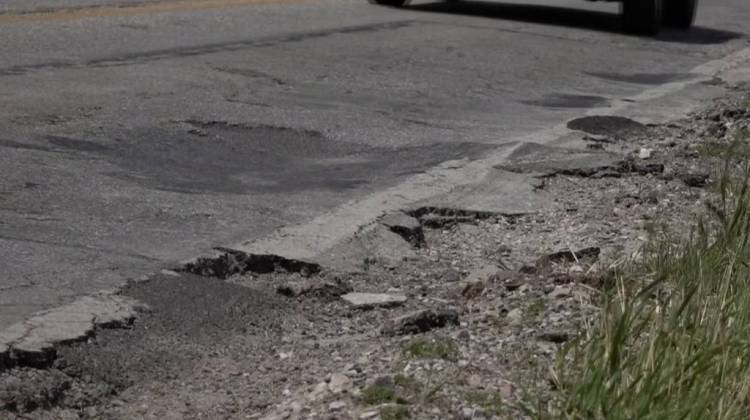
The report says row crops alternated with strips of native prairie improves biodiversity while also preventing runoff and nutrient loss.
Main photo: Lynn Betts, Inset: Farnaz Kordbacheh. U.S. Global Change Research ProgramWe’re already experiencing some of the extreme weather events consistent with climate change. That’s according to the fourth annual National Climate Assessment, which came out on the Friday after Thanksgiving.
Whether it’s stronger hurricanes like Harvey or more intense, long-lasting wildfires like the Camp Fire in California, the report says climate change is having an impact on extreme weather events across the country.
“But of course here in Indiana we’re not expecting to see massive wildfires raging across the land in that way," says Jeff Dukes, director of the Purdue Climate Change Research Center. "What we expect to see here is more extremely hot days.”
That could mean more heat-related deaths, reduced crop yields, and fewer tourists. There's a chapter in the report dedicated to climate impacts on the Midwest specifically.
Dukes says Indiana can also expect more large rains in the winter and spring contributing to flooding as well as more periods of drought.
The Midwest can expect to pay more for damages to infrastructure as a result of the weather changes than some other regions. Road damages alone could reach more than $3 billion per year in 2050.
READ MORE: The Impact Of Climate Change On Indiana
The report says few Midwestern cities have plans for how to adapt to the climate changes and the ones that do have yet to implement them.
"This report also stresses that we need to prepare locally. We need to find out what the local risks are and address those threats and vulnerabilities," Dukes says. "We need to figure out — Are our structures at risk? To what extent are our economies at risk? Are our natural ecosystems at risk?"
A number of organizations have come up with tools to help cities adapt to climate change.
Indiana Environmental reporting is supported by the Environmental Resilience Institute, an Indiana University Grand Challenge project developing Indiana-specific projections and informed responses to problems of environmental change.
 DONATE
DONATE







 Support WFYI. We can't do it without you.
Support WFYI. We can't do it without you.